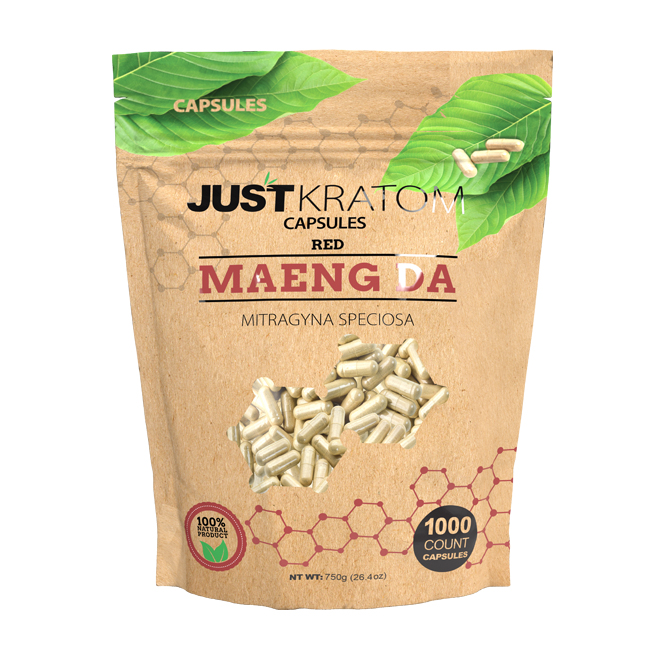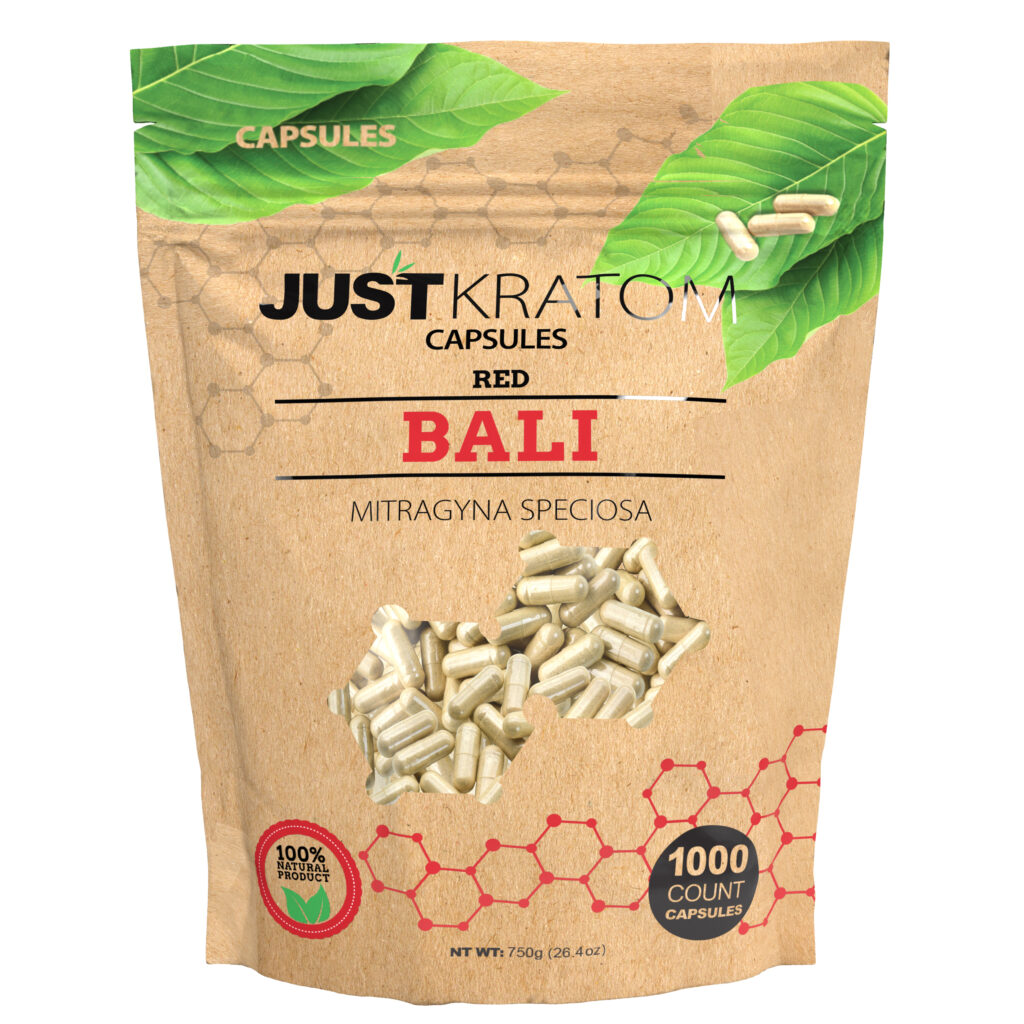Potential Benefits of Kratom for Detoxification

Kratom, an herbal supplement derived from the Mitragyna speciosa tree, has gained attention for its potential therapeutic benefits. Some proponents suggest that kratom may assist in detoxification processes by addressing withdrawal symptoms associated with opioid use and stimulating natural liver function.
Stimulant Effects

Kratom capsules are sometimes used as a potential aid in detoxification processes, particularly when it comes to managing opioid withdrawal.
While further research is needed to fully understand its mechanisms, kratom appears to exert these effects through several possible pathways:
- Reducing Opioid Cravings: Kratom contains alkaloids that may bind to opioid receptors in the brain, potentially mitigating cravings and withdrawal symptoms associated with opioid dependence.
- Supporting Liver Function: Some studies suggest that kratom may possess hepatoprotective properties, meaning it could help protect and support the liver’s function. A healthy liver is crucial for detoxification processes as it filters and eliminates toxins from the body.
- Stimulating Metabolism: Kratom has stimulant effects due to its interaction with certain neurotransmitters. This stimulation may potentially enhance metabolic activity, indirectly aiding in the body’s natural detoxification processes.
Painkilling Properties
It is important to note that kratom’s use for detoxification purposes is still under investigation and should be approached with caution. The effectiveness of kratom in detoxification remains largely anecdotal, and more rigorous scientific research is needed to confirm its benefits and potential risks.
Regarding kratom’s painkilling properties, it contains alkaloids that may interact with opioid receptors in the brain, similar to how prescription pain medications work.
This interaction could potentially alleviate pain by reducing pain signals transmitted to the brain.
Mechanism of Action and Detoxification
Understanding the mechanisms of action and detoxification pathways is crucial when exploring the potential benefits of substances like kratom. Detoxification refers to the body’s natural process of eliminating harmful substances. The liver plays a central role in this process, filtering and breaking down toxins for excretion.
Interaction with Opioid Receptors
Kratom exerts its effects by interacting with opioid receptors in the brain. These alkaloids bind to these receptors, mimicking the action of opioids like morphine. This binding can lead to a range of effects, including pain relief, sedation, and mood alteration.
The potential detoxifying effects of kratom are thought to be related to its interaction with opioid receptors and its possible impact on liver function. By mitigating opioid withdrawal symptoms, kratom may help individuals manage the discomfort associated with detoxification from opioids. Additionally, some studies suggest that kratom might have hepatoprotective properties, meaning it could protect and support the liver’s function. A healthy liver is crucial for detoxification as it filters and eliminates toxins from the body.
It’s important to remember that research on kratom’s detoxifying effects is still limited, and more studies are needed to fully understand its mechanisms and potential benefits and risks.
Possible Role in Reducing Withdrawal Symptoms
Kratom capsules are sometimes used as a potential aid in detoxification processes, particularly when it comes to managing opioid withdrawal. While further research is needed to fully understand its mechanisms, kratom appears to exert these effects through several possible pathways:
- Reducing Opioid Cravings: Kratom contains alkaloids that may bind to opioid receptors in the brain, potentially mitigating cravings and withdrawal symptoms associated with opioid dependence.
- Supporting Liver Function: Some studies suggest that kratom may possess hepatoprotective properties, meaning it could help protect and support the liver’s function. A healthy liver is crucial for detoxification processes as it filters and eliminates toxins from the body.
- Stimulating Metabolism: Kratom has stimulant effects due to its interaction with certain neurotransmitters. This stimulation may potentially enhance metabolic activity, indirectly aiding in the body’s natural detoxification processes.
It is important to note that kratom’s use for detoxification purposes is still under investigation and should be approached with caution. The effectiveness of kratom in detoxification remains largely anecdotal, and more rigorous scientific research is needed to confirm its benefits and potential risks.
Risks and Considerations
Exploring alternative approaches to detoxification has led some individuals to consider kratom capsules as a potential aid. However, it’s crucial to understand the complexities involved before utilizing kratom for this purpose.
Drug Interactions
While kratom shows promise in mitigating opioid withdrawal symptoms and potentially supporting liver function, its use for detoxification requires careful consideration. Research on kratom’s detoxifying effects is limited, and more studies are needed to confirm its efficacy and safety.
One significant concern is the potential for drug interactions. Kratom can interact with various medications, including antidepressants, opioid pain relievers, and stimulants. These interactions can lead to adverse effects or reduce the effectiveness of the medications.
Furthermore, kratom’s long-term effects are not fully understood. Chronic use may lead to dependence, tolerance, and withdrawal symptoms. Individuals with pre-existing health conditions, such as liver disease or mental health disorders, should exercise extreme caution when considering kratom.
Given the potential risks and uncertainties surrounding kratom’s use for detoxification, it is essential to consult with a qualified healthcare professional before using it.
Potential Side Effects
Krtatom capsules are sometimes used as a potential aid in detoxification processes, particularly when it comes to managing opioid withdrawal. While further research is needed to fully understand its mechanisms, kratom appears to exert these effects through several possible pathways:
- Reducing Opioid Cravings: Kratom contains alkaloids that may bind to opioid receptors in the brain, potentially mitigating cravings and withdrawal symptoms associated with opioid dependence.
- Supporting Liver Function: Some studies suggest that kratom may possess hepatoprotective properties, meaning it could help protect and support the liver’s function. A healthy liver is crucial for detoxification processes as it filters and eliminates toxins from the body.
- Stimulating Metabolism: Kratom has stimulant effects due to its interaction with certain neurotransmitters. This stimulation may potentially enhance metabolic activity, indirectly aiding in the body’s natural detoxification processes.
It is important to note that kratom’s use for detoxification purposes is still under investigation and should be approached with caution. The effectiveness of kratom in detoxification remains largely anecdotal, and more rigorous scientific research is needed to confirm its benefits and potential risks.
Exploring alternative approaches to detoxification has led some individuals to consider kratom capsules as a potential aid. However, it’s crucial to understand the complexities involved before utilizing kratom for this purpose.
One significant concern is the potential for drug interactions. Kratom can interact with various medications, including antidepressants, opioid pain relievers, and stimulants. These interactions can lead to adverse effects or reduce the effectiveness of the medications.
Furthermore, kratom’s long-term effects are not fully understood. Chronic use may lead to dependence, tolerance, and withdrawal symptoms. Individuals with pre-existing health conditions, such as liver disease or mental health disorders, should exercise extreme caution when considering kratom.
Given the potential risks and uncertainties surrounding kratom’s use for detoxification, it is essential to consult with a qualified healthcare professional before using it.
Legal Status and Regulations
The legal status and regulations surrounding kratom vary widely depending on the country or state. In some places, kratom is legal and readily available, while in others it is completely banned.
The United States has seen a complex evolution in kratom regulation. At the federal level, kratom is not explicitly illegal, but its legal status remains somewhat ambiguous.
Several states have enacted their own bans or restrictions on kratom sales and possession.
Understanding the specific laws and regulations in your location is crucial before considering using kratom. It’s important to note that even where kratom is legal, there may be age restrictions or limitations on how it can be sold or consumed.
Alternatives to Kratom for Detoxification
Exploring alternative approaches to detoxification has led some individuals to consider kratom capsules as a potential aid. However, it’s crucial to understand the complexities involved before utilizing kratom for this purpose.
One significant concern is the potential for drug interactions. Kratom can interact with various medications, including antidepressants, opioid pain relievers, and stimulants. These interactions can lead to adverse effects or reduce the effectiveness of the medications.
Furthermore, kratom’s long-term effects are not fully understood. Chronic use may lead to dependence, tolerance, and withdrawal symptoms. Individuals with pre-existing health conditions, such as liver disease or mental health disorders, should exercise extreme caution when considering kratom.
Given the potential risks and uncertainties surrounding kratom’s use for detoxification, it is essential to consult with a qualified healthcare professional before using it.
Medical Detox Programs
Alternatives to kratom exist for detoxification. Medical detox programs are supervised by medical professionals and can provide a safe and effective way to manage withdrawal symptoms and support the body’s natural detoxification processes.
These programs typically involve a combination of medications, therapy, and lifestyle changes tailored to the individual’s needs.
Other options include:
- Herbal Supplements: Certain herbal supplements like milk thistle and dandelion root are traditionally used to support liver function.
- Acupuncture: This traditional Chinese medicine practice may help reduce cravings and promote overall well-being.
- Exercise: Regular physical activity can stimulate metabolism and aid in toxin elimination.
- Diet Modifications: Eating a healthy, balanced diet rich in fruits, vegetables, and whole grains can support detoxification processes.
It is crucial to consult with a healthcare professional before making any decisions regarding detoxification methods, as they can provide personalized advice based on individual needs and medical history.
Therapy and Counseling
Alternatives to kratom exist for detoxification. Medical detox programs are supervised by medical professionals and can provide a safe and effective way to manage withdrawal symptoms and support the body’s natural detoxification processes.
These programs typically involve a combination of medications, therapy, and lifestyle changes tailored to the individual’s needs.
Other options include:
- Herbal Supplements: Certain herbal supplements like milk thistle and dandelion root are traditionally used to support liver function.
- Acupuncture: This traditional Chinese medicine practice may help reduce cravings and promote overall well-being.
- Exercise: Regular physical activity can stimulate metabolism and aid in toxin elimination.
- Diet Modifications: Eating a healthy, balanced diet rich in fruits, vegetables, and whole grains can support detoxification processes.
Therapy and counseling can also play a vital role in supporting individuals during detoxification and addressing underlying issues that may contribute to substance use.
Cognitive-behavioral therapy (CBT) is particularly helpful in managing cravings, developing coping mechanisms, and addressing thought patterns associated with addiction.
Lifestyle Modifications
Alternatives to kratom exist for detoxification. Medical detox programs are supervised by medical professionals and can provide a safe and effective way to manage withdrawal symptoms and support the body’s natural detoxification processes.
These programs typically involve a combination of medications, therapy, and lifestyle changes tailored to the individual’s needs.
Other options include:
- Herbal Supplements: Certain herbal supplements like milk thistle and dandelion root are traditionally used to support liver function.
- Acupuncture: This traditional Chinese medicine practice may help reduce cravings and promote overall well-being.
- Exercise: Regular physical activity can stimulate metabolism and aid in toxin elimination.
- Diet Modifications: Eating a healthy, balanced diet rich in fruits, vegetables, and whole grains can support detoxification processes.
Therapy and counseling can also play a vital role in supporting individuals during detoxification and addressing underlying issues that may contribute to substance use.
Cognitive-behavioral therapy (CBT) is particularly helpful in managing cravings, developing coping mechanisms, and addressing thought patterns associated with addiction.
Order Kratom capsules for mood support
- NCTF 135 HA: A Breakthrough In Anti-Aging Treatments In Kingston - June 1, 2025
- The Growing Demand For THC Beverages Among Gen Z - May 31, 2025
- Skin Pen Microneedling Near Albury, Surrey - May 31, 2025
